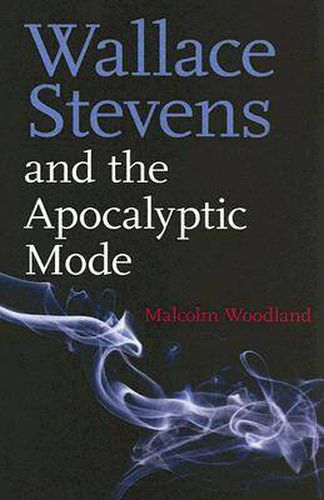Readings Newsletter
Become a Readings Member to make your shopping experience even easier.
Sign in or sign up for free!
You’re not far away from qualifying for FREE standard shipping within Australia
You’ve qualified for FREE standard shipping within Australia
The cart is loading…






Wallace Stevens and the Apocalyptic Mode focuses on Stevens’s doubled stance toward the apocalyptic past: his simultaneous use of and resistance to apocalyptic language, two contradictory forces that have generated two dominant and incompatible interpretations of his work. The book explores the often paradoxical roles of apocalyptic and antiapocalyptic rhetoric in modernist and postmodernist poetry and theory, particularly as these emerge in the poetry of Stevens and Jorie Graham. This study begins with an examination of the textual and generic issues surrounding apocalypse, culminating in the idea of apocalyptic language as a form of
discursive mastery
over the mayhem of events. Woodland provides an informative religious/historical discussion of apocalypse and, engaging with such critics as Parker, Derrida, and Fowler, sets forth the paradoxes and complexities that eventually challenge any clear dualities between apocalyptic and antiapocalyptic thinking. Woodland then examines some of Stevens’s wartime essays and poems and describes Stevens’s efforts to salvage a sense of self and poetic vitality in a time of war, as well as his resistance to the possibility of cultural collapse. Woodland discusses the major postwar poems
Credences of Summer
and
The Auroras of Autumn
in separate chapters, examining the interaction of (anti)apocalyptic modes with, respectively, pastoral and elegy. The final chapter offers a perspective on Stevens’s place in literary history by examining the work of a contemporary poet, Jorie Graham, whose poetry quotes from Stevens’s oeuvre and shows other marks of his influence. Woodland focuses on Graham’s 1997 collection The Errancy and shows that her antiapocalyptic poetry involves a very different attitude toward the possibility of a radical break with a particular cultural or aesthetic stance. Wallace Stevens and the Apocalyptic Mode, offering a new understanding of Stevens’s position in literary history, will greatly interest literary scholars and students.
$9.00 standard shipping within Australia
FREE standard shipping within Australia for orders over $100.00
Express & International shipping calculated at checkout
Wallace Stevens and the Apocalyptic Mode focuses on Stevens’s doubled stance toward the apocalyptic past: his simultaneous use of and resistance to apocalyptic language, two contradictory forces that have generated two dominant and incompatible interpretations of his work. The book explores the often paradoxical roles of apocalyptic and antiapocalyptic rhetoric in modernist and postmodernist poetry and theory, particularly as these emerge in the poetry of Stevens and Jorie Graham. This study begins with an examination of the textual and generic issues surrounding apocalypse, culminating in the idea of apocalyptic language as a form of
discursive mastery
over the mayhem of events. Woodland provides an informative religious/historical discussion of apocalypse and, engaging with such critics as Parker, Derrida, and Fowler, sets forth the paradoxes and complexities that eventually challenge any clear dualities between apocalyptic and antiapocalyptic thinking. Woodland then examines some of Stevens’s wartime essays and poems and describes Stevens’s efforts to salvage a sense of self and poetic vitality in a time of war, as well as his resistance to the possibility of cultural collapse. Woodland discusses the major postwar poems
Credences of Summer
and
The Auroras of Autumn
in separate chapters, examining the interaction of (anti)apocalyptic modes with, respectively, pastoral and elegy. The final chapter offers a perspective on Stevens’s place in literary history by examining the work of a contemporary poet, Jorie Graham, whose poetry quotes from Stevens’s oeuvre and shows other marks of his influence. Woodland focuses on Graham’s 1997 collection The Errancy and shows that her antiapocalyptic poetry involves a very different attitude toward the possibility of a radical break with a particular cultural or aesthetic stance. Wallace Stevens and the Apocalyptic Mode, offering a new understanding of Stevens’s position in literary history, will greatly interest literary scholars and students.